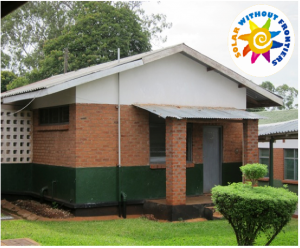Renewable energy for Mulanje Mission Hospital
Published on March 30, 2012 at 3:47 PM by FACE OF MALAWI
 Mulanje Mission Hospital is one of two hospitals serving a population of 550,000 people in the Mulanje district of south east Malawi. The 220 bedded hospital provides a full range of medical, surgical and pediatric services, and, with the adjacent College of Nursing, has become well known for its high standards of care, working under the governance of Blantyre Synod of the Central Church of Africa Presbyterian (CCAP). Mulanje Mission Hospital has expanded over the last decade, with increasing outpatient attendances and admissions particularly due to HIV/AIDS. The hospital provides the only premature baby unit and neonatal care service for the district population, taking referrals from the government hospital and several rural health centers. The operating theatre is busy day and night, with caesarian sections and a range of other surgical procedures. All the clinical departments require a reliable source of power for lights, oxygen concentrators, suction – all essential for patient care.
Mulanje Mission Hospital is one of two hospitals serving a population of 550,000 people in the Mulanje district of south east Malawi. The 220 bedded hospital provides a full range of medical, surgical and pediatric services, and, with the adjacent College of Nursing, has become well known for its high standards of care, working under the governance of Blantyre Synod of the Central Church of Africa Presbyterian (CCAP). Mulanje Mission Hospital has expanded over the last decade, with increasing outpatient attendances and admissions particularly due to HIV/AIDS. The hospital provides the only premature baby unit and neonatal care service for the district population, taking referrals from the government hospital and several rural health centers. The operating theatre is busy day and night, with caesarian sections and a range of other surgical procedures. All the clinical departments require a reliable source of power for lights, oxygen concentrators, suction – all essential for patient care.
Malawi’s mains electricity provider has limited capacity and over recent years has been increasingly unable to meet demand, resulting in frequent ‘load shedding’ or power cuts. At MMH there are often 4-5 power outages in a week, which may last for up to eight hours. MMH has a small generator, but this cannot replace all the power required to light the hospital and maintain emergency services such as paediatric intensive care, theatre and the labour ward. Malawi has limited forex to import petrol and diesel, so fuel is expensive and in very short supply, restricting the hospital’s ability to keep the generator running. The staff at MMH pride themselves on providing a high standard of care for their patients, but power supply problems are having an adverse impact on the ability of clinicians and nurses to provide quality care – imagine operating by torch light, the labour ward in darkness during a difficult delivery or the effect on a premature baby of a sudden cessation of oxygen supply. Staff safety and security are also compromised as corridors and steps are often unlit at night. SwF will provide technical assistance with installation and training for staff on maintenance of the equipment. Two volunteers of SWF-Team will be flying to Malawi this September to install the Photovoltaic System this September. The system to be installed will be extendable, so that if evaluation is favorable, it can be developed to provide lights and power for the maternity department and the operating theatre as a further phase.
Benefits of this project
Even with the compelling advantages that solar power offers, the Human Development Report, published by the UN Development Programme (UNDP), shows that the majority of Africans are still reliant on traditional energy sources. This project will not only benefit Mulanje Mission Hospital by providing reliable, low cost, renewable energy, but will stimulate interest in solar energy from individuals, hospitals, schools and similar institutions in this part of Malawi by providing a demonstration of what can be achieved.

